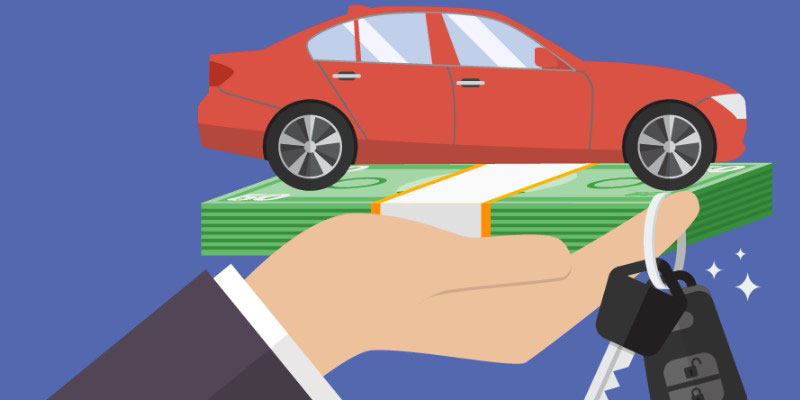
To get approved for a car loan, you need a higher credit score than the average. Car loan applications are evaluated based on several financial parameters, including credit history and income.
Your ability to make loan repayments depends heavily on your credit score. But how this factors into your vehicle loan application depends on the specific lender you go with and the particular scoring model(s), they employ to determine your creditworthiness. However, the likelihood of getting a low-interest rate and lenient loan terms increases as one's credit score rises.
How Do Auto Lenders Evaluate Credit Scores?

When it comes to auto loans, the first thing you need to realize is that the credit scoring model utilized by the lender may differ from the one you are used to seeing when you check your credit.
Depending on the lender, they may use:
- The most recent versions of the FICO score are 8 and 9, which are considered "basic" credit scores. They offer a snapshot of your creditworthiness in the big picture. Your credit card company or a credit monitoring agency may provide you with access to one of these ratings.
- FICO also offers credit scoring models tailored to the auto sector, known as FICO Auto Scores, which provide lenders with even more insight into your propensity to repay a car loan on time. You may have a more challenging time getting approved for an auto loan if your credit history includes late or missed payments.
- VantageScore 3.0 or 4.0: VantageScore offers these two models, formed by the three credit reporting agencies—Experian, Equifax, and TransUnion. While the FICO and VantageScore models use information from your credit record to estimate your creditworthiness, the VantageScore models differ in numerous subtle ways.
Application Procedure for a Car Loan
There are a few things to consider before applying for an auto loan if you need a new vehicle.
1. Find Out Your Credit Rating
If you want to know how likely you are to get approved for a loan and on what terms you can expect to pay, check your Experian credit score. If you have a low credit score but are still deciding whether to buy a car, it can be wise to concentrate on raising it first. Credit-building strategies include:
- You should contact the reporting companies if things could be improved on your credit reports.
- Verify your credit report for errors, such as overdue payments, collection accounts, and excessive credit card balances, so you can take the necessary steps to improve your credit score.
- If payments were missed, catch up and stay current on your bills.
- Reduce the percentage of your available credit used by keeping your balances low.
- Applying for new credit should be done only when necessary.
- Get a cosigner, save up for a substantial down payment, and shop for a second-chance auto loan if you need a car badly but have poor credit.
2. Check Out Lenders
One of the easiest ways to cut costs on a car loan is to shop around. Since each lender has its requirements and terms, shopping around is the best way to discover the most affordable and suitable loan.
3. Have A Substantial Down Payment Or Valuable Trade-In
Reducing the total amount borrowed and, thus, the interest paid can be accomplished through a combination of a down payment and trade-in. The lender assumes less risk with a smaller loan, which may reduce your interest rate.
Starting to save for a down payment early is recommended. Also, if you can get more money by selling your automobile to an individual than by trading it in, you should do that instead of making a deal.
4. Get Preapproved Before You Shop
Preapproval from a bank or other auto lender is often available before a customer visits a dealership. It takes little time, and you can usually complete it all online; besides, you might receive a better rate on financing than the dealer could get you through their network of lenders.
What Credit Score Do I Need For An Auto Loan?

Car loan applications are evaluated based on several financial parameters, including credit history and income.
Your ability to make loan repayments depends heavily on your credit score. But how these factors into your vehicle loan application depends on the specific lender you go with and the particular scoring model(s), they employ to determine your creditworthiness. However, the likelihood of getting a low-interest rate and lenient loan terms increases as one's credit score rises.
Although borrowers in each score band have nearly the same average outstanding auto loan balances, the APRs they pay on those loans are very different. Those with better credit are more likely to qualify for preferential financing, allowing them to stretch their dollar further.



